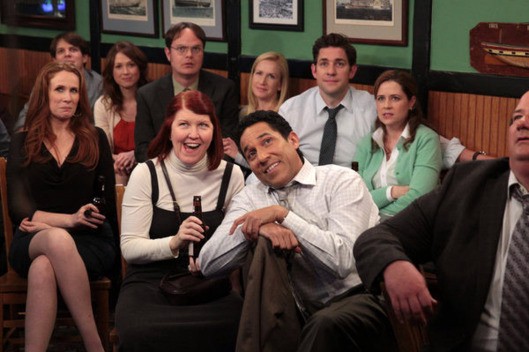America’s Best Boss Dan Price Doubles Profits After Raising Minimum Salary to $70,000

What can we say about Dan Price, CEO of Gravity Payments?
He gave a classroom of sixth graders $1,000 college scholarships.
I got to meet him, and he was just as generous and inspiring in person.
He also knows how to run a business. As Inc. reports:
Six months after Price’s announcement, Gravity has defied doubters. Revenue is growing at double the previous rate. Profits have also doubled.
That isn’t all Inc. reported. Their longread profile of Dan Price — which is a must read, by the way — includes Price’s newest cost-of-living adjustment:
Price isn’t backing down about pay going up. Now he’s going all in. He revealed to Inc. that he has sold all his stocks, emptied his retirement accounts, and mortgaged his two properties — including a $1.2 million home with a view of Puget Sound — and poured the $3 million he raised into Gravity. As majority owner, he is not exactly penniless. But if Gravity fails, so does Price. “Most people live paycheck to paycheck,” he says. “So how come I need 10 years of living expenses set aside and you don’t? That doesn’t make any sense. Having to depend on modest pay is not a bad thing. It will help me stay focused.”
I want to whisper to Price that the 10 years of living expenses are for retirement, and it’s not that the rest of us don’t need them, it’s that it’s really hard to put together 10 years of living expenses when we’re barely earning one year of living expenses. But he already knows that, right? I’d feel really weird giving Dan Price financial advice.
The most interesting part of the Inc. story? It’s not the part about how Dan Price’s brother is suing him, although it’s fascinating that one brother is emptying his retirement accounts and the other brother is suing because Gravity “deprived Lucas Price of his minority-shareholder benefits.”
It’s about how this whole thing got started when an entry-level employee dared to challenge his boss:
It was late 2011. [Jason Haley] was a 32-year-old phone tech earning about $35,000 a year, and he was in a sour mood. Price had noticed it, and when he spotted Haley outside on a smoking break, he approached. “Seems like something’s bothering you,” he said. “What’s on your mind?”
“You’re ripping me off,” Haley told him.
Price was taken aback. Haley is shy, not prone to outbursts. “Your pay is based on market rates,” Price said. “If you have different data, please let me know. I have no intention of ripping you off.” The data doesn’t matter, Haley responded: “I know your intentions are bad. You brag about how financially disciplined you are, but that just translates into me not making enough money to lead a decent life.”
It’s a perfect example of what we’ve been discussing this month re: how saying no helps your career:
Saying no or pushing back was important because it made you more valuable. If you say yes to everything, then people don’t have to consider your needs to get you on board. If you say no sometimes, people have to start thinking about what you might want before they make their offer.
In this case, one employee pushing back made Dan Price rethink his entire team’s value. I’m very interested to see what happens next in the Gravity Payments story.
Support The Billfold
The Billfold continues to exist thanks to support from our readers. Help us continue to do our work by making a monthly pledge on Patreon or a one-time-only contribution through PayPal.
Comments